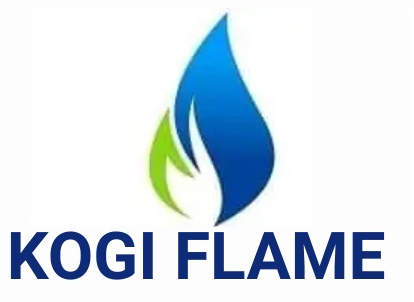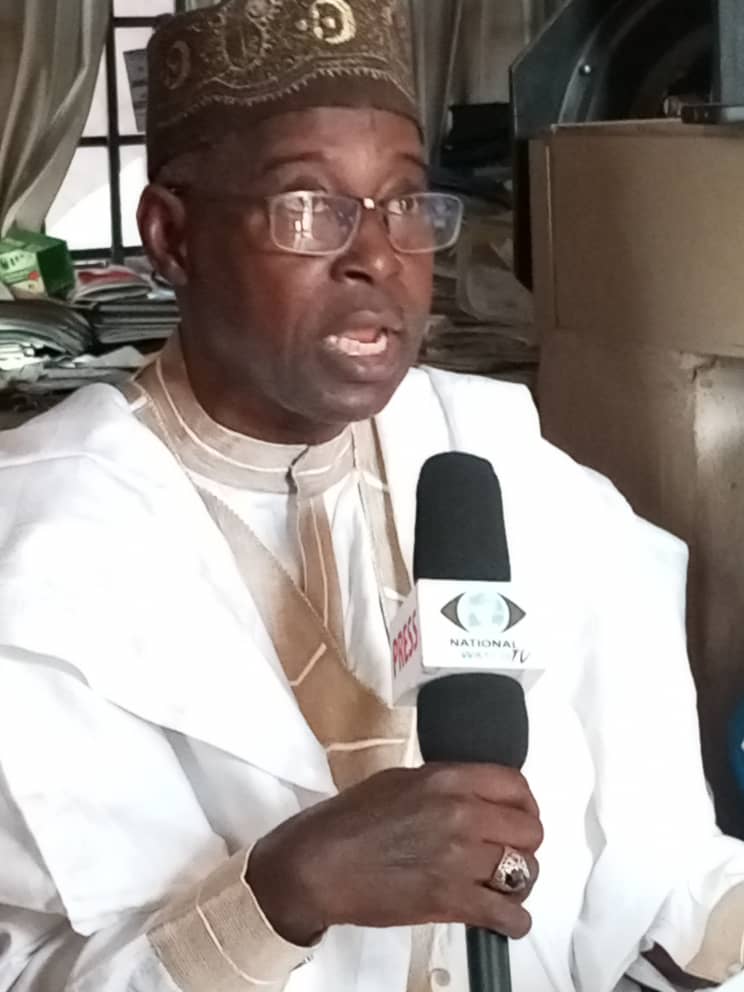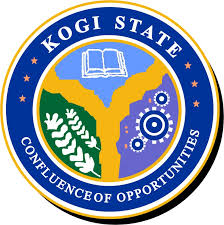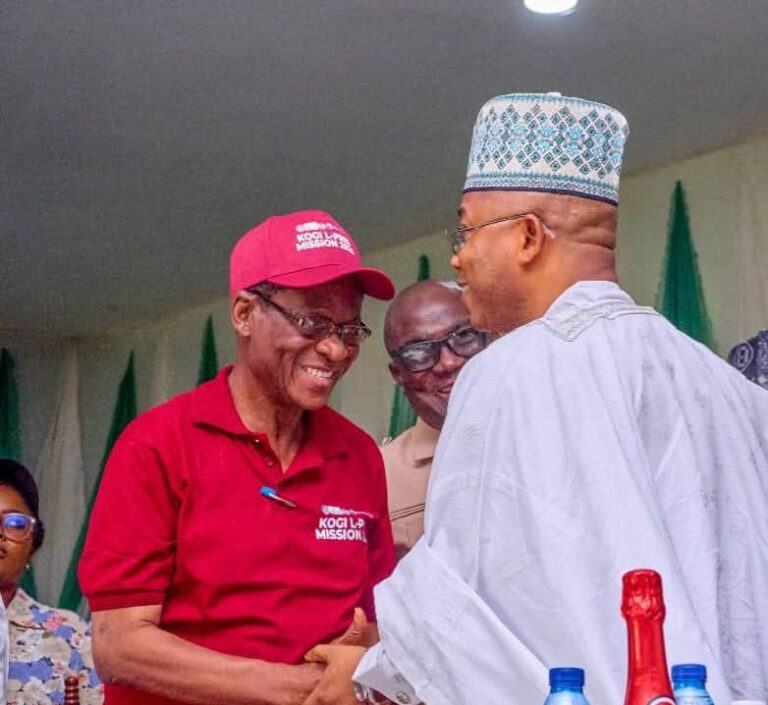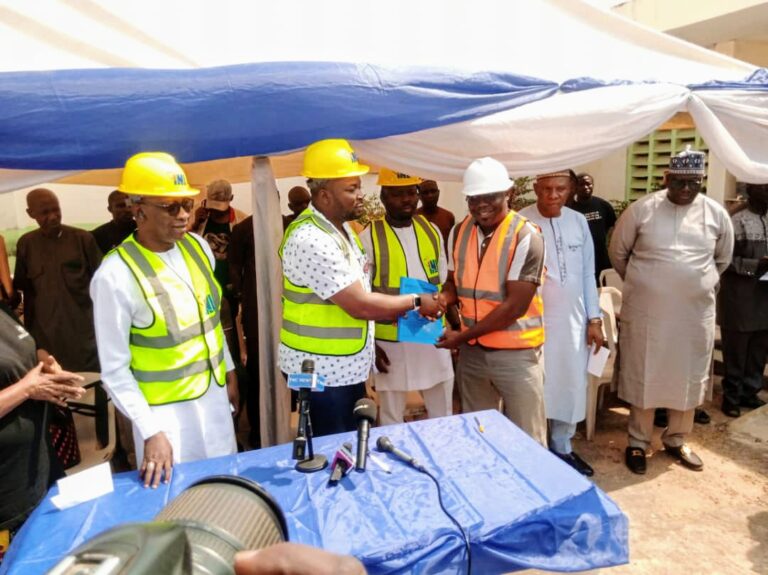Warning: Attempt to read property "post_excerpt" on null in /home/kogiflam/public_html/wp-content/themes/morenews/single.php on line 55


President Muhammadu Buhari on Tuesday affirmed the Nigerian government’s commitment to ensure timely delivery of the landmark Ajaokuta-Kaduna-Kano Gas (AKK) pipeline project within budgetary allocation and specifications.
Speaking at the virtual flag-off ceremony of the project at the Ajaokuta, Kogi State and Rigachikun, Kaduna State camp sites simultaneously, President Buhari said the project was very dear to the people of Nigeria and must succeed.
The President, therefore, directed the NNPC and partners to remain focused, noting that the AKK project is part of the delivery of the present administration’s Next Level Agenda for sustainable development, enhancement of economic prosperity and increase of the country’s infrastructure assets.
Governors Yahaya Bello of Kogi State and Nasir El-Rufai of Kaduna physically flagged off the commencement of works at Ajaokuta and Rigachikun sites, while the President watched remotely via video-conference from the Council Chamber in Abuja.
President Buhari said: ‘‘we promised the Nation that we will expand the critical gas infrastructure in the country to promote the use of gas in the domestic market.
‘‘These include the Escravos to Lagos Pipeline System – 2 (ELPS-2), Obiafu to Obrikom (OB3) pipeline and AKK.
‘‘These projects are fundamental to our desire to industrialize and energize the entrepreneurial spirit that is ever present in our population.’’
Enumerating the benefits of the project, billed to be completed in two years, the President said it will provide gas for generation of power and for gas-based industries which would facilitate the development of new industries.
It will also ensure the revival of moribund industries along transit towns in Kogi State, Abuja (FCT), Niger State, Kaduna State and Kano State, he said, adding that the cascading effect and impact of the AKK, when operational, will be immeasurable.
His words: ‘‘It has significant job creation potential both direct and indirect, while fostering the development and utilization of local skills and manpower, technology transfer and promotion of local manufacturing.’’
President Buhari announced that Nigeria had learnt invaluable lessons from the global COVID-19 pandemic and some oil rich countries that have used their crude as a pathway to economic and industrial diversification.
On COVID-19, the President said the pandemic had further underscored the drive of his administration for export substitution initiatives and projects that promote local manufacturing.
On diversification, the President said: ‘‘Gulf countries that have similar levels of gas reserves as Nigeria, have a strategy centered around gas-industrialization as their foundation towards export diversification. This has to be our guiding principle as we seek to attract investment and create opportunities for our people.’’
The President also used the occasion to challenge the private sector to lead the charge in maximising the nation’s gas resources.
According to him the private sector can create a petrochemical hub that will resurrect the manufacturing industry and put the nation on the path to increased self-sufficiency.
‘‘As the world evolves, we owe our people the responsibility to prepare them for what the future holds. We, therefore, must be bold and fearless and can no longer be incremental in our approach.
‘‘Time is short, and our people’s zeal is strong and palpable. Infrastructure development although long, tedious and complex remains a cardinal objective of our Administration’s drive towards ensuring a stable, sustainable and more prosperous future for our citizenry.
‘‘Today marks an important chapter in the history of our great Nation. It marks the day when our domestic natural gas pipeline networks; from Obiafu in Rivers State, Escravos in Delta State and Lekki in Lagos State, are being connected through Kaduna to Kano States thereby enhancing national energy security, creating balanced development, and further integrating our nation,’’ he said.
The President commended the Government of the People’s Republic of China; the financiers the Bank of China and SINOSURE; and the two EPC Contractors (Brentex/China Petroleum Pipeline Bureau-CPP Consortia and Oilserve/China First Highway Engineering Company-CFHEC Consortia) for their support to deliver the important project.
He also congratulated the Ministry of Petroleum Resources, NNPC and all relevant stakeholders on the historic and epoch-making occasion, commending the resilience of the team to deliver on the project despite the COVID-19 pandemic.
The President appealed to Governors of Kogi, Niger, Kaduna and Kano States as well as the Minister of the Federal Capital Territory to provide the enabling environment and support for the project.
In his remarks, Mallam Mele Kyari, Group Managing Director, NNPC, explained that the AKK gas pipeline project, which is part of the Trans-Nigeria gas pipeline project, involves the establishment of a connecting gas pipeline network that will integrate the Northern region of the country with the Niger Delta, Eastern and Western regions of the Country.
He said the EPC contract for the 614km AKK gas pipeline project was awarded at a total contract sum of US$2.592 billion to Messrs. Oilserv Plc/China First Highway Engineering Company (Oilserv/CFHEC Consortium) for the first segment covering 303km.
According to the GMD NNPC, Messrs. Brentex Petroleum Services/China Petroleum Pipeline Bureau (Brentex/CPP Consortium) got the contract for the second segment covering 311km under a debt-equity financing model with loan from Bank of China and SINOSURE, to be repaid through the pipeline transmission tariff and supported by a sovereign guarantee.
‘‘We are confident that the EPC contractors will deliver the project on time, within budget and to quality/specifications,’’ he said.
Kyari added that upon completion, the project would enable the injection of 2.2bscf/d of gas into the domestic market and facilitate additional power generation capacity of 3,600MW.
